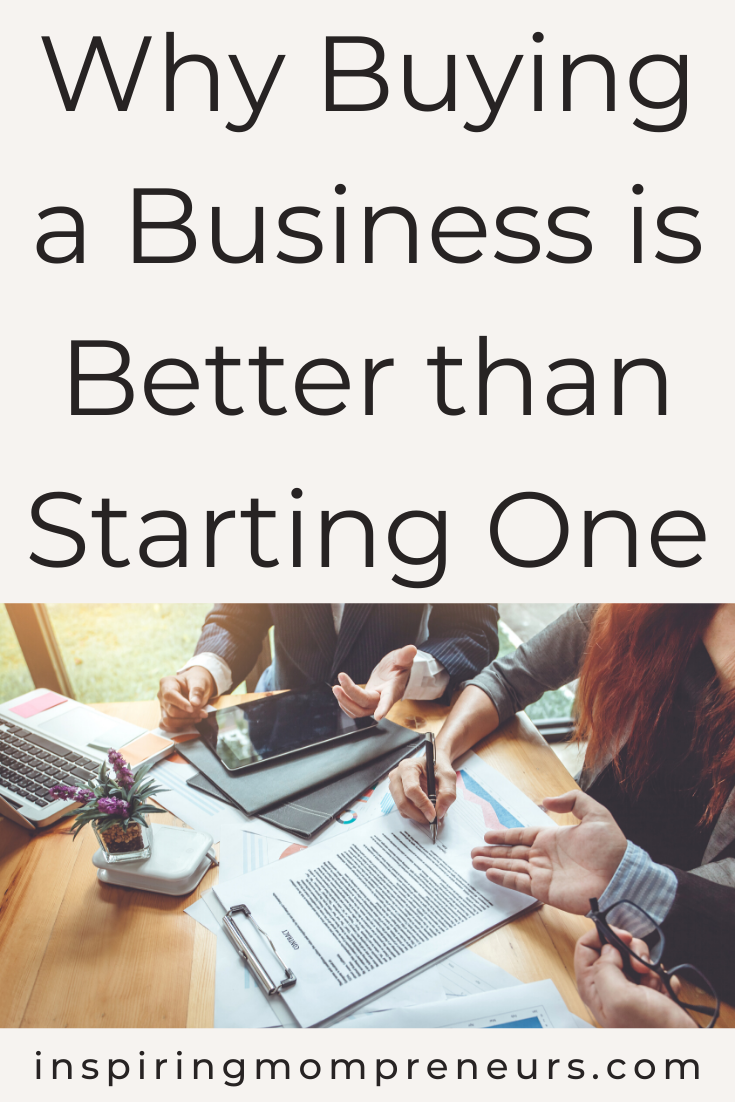Do you want to boost your wealth and become part of the 1%? If so, the solution is to be the boss and launch a business of your own.
As an entrepreneur, you get to control the finances and commercial motives, meaning you receive a bigger share when you’re successful. It’s only fair that you’re fully recompensed for your time and effort.
Check most books, guides, and resources, and they’ll tell you that starting a new company is the only viable option available. It’s accessible, affordable, and more straightforward than ever, thanks to advancements in technology that are now commonplace. Anybody can make it with a mobile device and an internet connection.
However, there is another path you can travel down – investing in an already existing enterprise. As a rule, it’s the quickest way to reach your goals without the usual hassle.
To find out why – take a look at the following reasons to buy a business.
 Make Faster Money
Make Faster Money
Businessmen and women see themselves joining Gates, Buffett, and Bezos at the top of the Forbes list. You should because you need a high level of drive and passion if you want to be successful.
Of course, the reality is that it takes quite a while to lay the foundations for a profitable company.
Typically, 29% of startups run out of cash within twelve months, so the first few years are dedicated to cutting back and staying afloat.
A side-effect of bootstrapping is that there isn’t much money to go around. Once you’ve paid the suppliers and your employees, not to mention directors of LLCs, your share will be low.
Sure, you’re playing the long game and plan on recouping your investment further down the line. However, buying a business that already exists means that the process of cutting costs isn’t as intense. As a result, the profits will be bigger, and your share higher.
In short, you can make money faster rather than waiting for your ROI. Remember that investing in a startup is risky, considering 70% fail by their tenth year.
Don’t Use Personal Resources
You may see this and think, “yes, but I’ve still got to pay the owner a fee.” Let’s face it – the value isn’t going to be on the small side. Even companies with less than impressive numbers will command tens of thousands of dollars, if not more.
On the other hand, launching a startup is significantly cheaper, with some successful organizations only having $5,000 to their name. The figure could be higher because each case is different, but it’s less than an investment.
Before you decide that you don’t have the funds, you should contemplate a negotiation with the current owner. A tactic that investors use to acquire funds or control of a company is to make the seller part of the deal.
What does this mean? Well, it can include paying them a certain amount of money out of the company’s profits. It may take a couple of years, but it’s a smart move if the business is profitable and reliable.
A sneakier choice is to buy up target assets. This Investopedia post goes into the process in detail, but the pertinent thing to keep in mind is that you can bypass the decision-making process by purchasing 50% of a firm’s assets.

Image Credit: Pexels – CC0 Licence
Lean On Their Groundwork
The best reason to buy a business rather than starting one is to lean on the previous owners’ groundwork. Launching a startup not only includes obtaining finance, but involves securing and nurturing relationships, recruiting quality workers, and searching for office space. Aside from being costly, these are stressful tasks. Therefore, they make your job far more challenging than necessary.
When you purchase a company, you get the operational framework. So, the act of investing rather than creating offers more bang for your buck. You may not need to muscle the existing owner out, or convince them to sell, either.
A franchise is a fantastic middle ground because it provides buying opportunities along with a strong support system.
The likes of Mosquito Authority go further by stating that investors also get world-class products, systems, and technology. Learn more about Mosquito Authority franchises by clicking the link. In many ways, inheriting a foundation that you know works is a no-brainer.
The fact you can do it without extended negotiations is more appealing.
Choose From Correct Sectors
The idea that owners don’t want to sell isn’t centred in reality. They do, and the reasons aren’t as apparent as you may assume. Declining revenues can force them to search for buyers, but the main reasons according to Quiet Light Brokerage are boredom and new opportunities.
Once an entrepreneur builds something successful, the novelty can fade and cause them to look for another project.
This means two things. Firstly, buying a business is a viable option if you’re interested. Secondly, you can choose potential companies from sectors that are ‘recession-proof.’
Okay, results are never guaranteed, and you shouldn’t take profits for granted. Still, there are levels of success. Food, healthcare, and finance sectors are more likely to continue making money in most situations because they are essential services.
When you choose carefully, you give yourself the best chance of making long-term profits.
Image Credit: Pexels – CC0 Licence
You Won’t have to Wait Long
A quality entrepreneur knows when to take risks and when to hold back. Looking at the market, you may not see anything worth investing in, so you step back and keep your money in your pocket. However, you shouldn’t see this as detrimental to your goals.
You already know that seven out of ten businesses fail after ten years, but you won’t have to wait for a decade to pass before you get to strike. 50% of companies go broke within half that time, and 20% are cashless within the first year. Therefore, the opportunities won’t be few and far between as long as you are patient and don’t panic.
Where do you stand on the argument? Are you for launching a startup or for buying a business outright? Do you have any experience in buying businesses? Leave your thoughts on the subject below.
Featured Image Credit: Pexels – CC0 Licence


